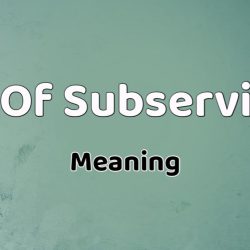In the vast tapestry of religious and spiritual terminology, one term that resonates with profound significance is “El Shaddai.” This ancient Hebrew expression, often found in religious texts, carries a rich and multifaceted meaning that has intrigued scholars and seekers alike. In this exploration, we’ll delve into the depth of El Shaddai Meaning, uncovering its etymology, historical context, and its relevance in contemporary spiritual discourse.

El Shaddai Etymology: Unraveling the Linguistic Threads
El Shaddai, in its most basic form, is a Hebrew term that can be translated to mean “God Almighty” or “God of the Mountains.” The term is a composite of two primary elements: “El,” meaning God, and “Shaddai,” often associated with Almighty or All-Sufficient. The combination of these linguistic components paints a vivid picture of a deity whose power and providence extend to all realms.
Biblical Roots: El Shaddai in Sacred Texts
To comprehend the full scope of El Shaddai’s meaning, we must turn to its frequent appearances in the Bible, particularly in the Old Testament. The first instance occurs in the book of Genesis, where God introduces himself to Abraham as El Shaddai, forging a covenant with the patriarch. This covenant, rooted in divine promise and protection, sets the tone for the recurring theme of God’s omnipotence throughout the biblical narrative.
In Exodus, the name El Shaddai resurfaces as God reaffirms his covenant with the Israelites. The context here emphasizes not only God’s might but also his role as the sustainer and nurturer of his chosen people. This nurturing aspect is often symbolized by the image of a nurturing mother, adding a layer of intimacy to the divine identity.
El Shaddai in Jewish Tradition: Nurturer and Sustainer
Within Jewish tradition, El Shaddai is associated with the concept of sufficiency. The imagery of God as the Almighty and All-Sufficient One suggests a source of abundance and completeness. This portrayal aligns with the Jewish understanding of God as the ultimate provider, meeting the needs of his people in both the material and spiritual dimensions.
Related : Sign Of Subservience Meaning
Christian Interpretations: El Shaddai in the New Testament
In the Christian tradition, El Shaddai takes on new dimensions as it merges with the New Testament narrative. The concept of God’s almightiness is seamlessly integrated into the teachings of Jesus Christ. The understanding of God as a nurturing and all-encompassing force finds resonance in Jesus’ portrayal of God as a loving father, caring for his children with unwavering devotion.
El Shaddai Today: Relevance in Contemporary Spirituality
As we navigate the complexities of the modern world, the essence of El Shaddai remains pertinent. In a society often characterized by uncertainty and upheaval, the idea of a God who is both all-powerful and nurturing provides solace and reassurance. The concept of El Shaddai encourages believers to trust in a higher power that not only holds the universe together but also cares intimately for each individual.
- El Shaddai meaning
- God Almighty
- Biblical roots
- Jewish tradition
- Christian interpretations
- Divine nurturer
- All-sufficient God
- Covenant with Abraham
- Spiritual sustenance
- Contemporary spirituality
Conclusion: Embracing the All-Encompassing Nature of El Shaddai
In conclusion, the meaning of El Shaddai extends far beyond a mere linguistic expression. It encapsulates a profound understanding of divinity as both powerful and nurturing, resonating through biblical narratives, Jewish traditions, and Christian teachings. Embracing the concept of El Shaddai in our contemporary spiritual journey invites us to trust in a God who not only holds the mountains but also cradles us in the palm of His mighty hand. In a world seeking stability and meaning, the essence of El Shaddai offers a timeless anchor for the human soul.






